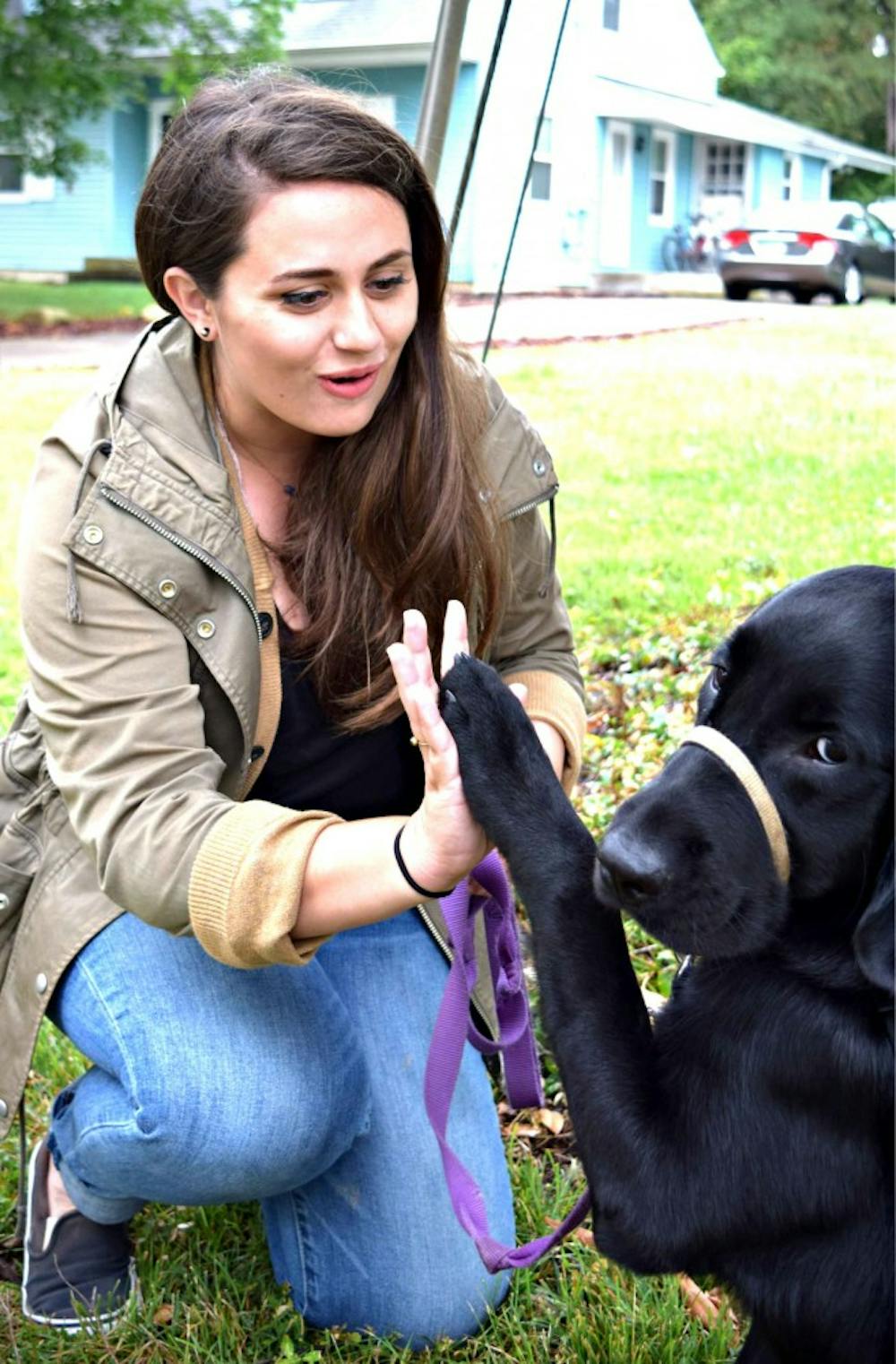When Malory Owen was 4 years old, her parents lost sight of her at Hueston Woods. Like any good parents, they panicked, assuming the worst had happened on their guided tour.
They found Malory at the front of the group hike, holding hands with her new friend Ingvar, a naturalist. On each subsequent visit to the park, Malory brought her friend more questions about the expansive animal kingdom.
"My respect for wildlife really stemmed from those interactions," Malory said.
Along with the common pets like cats and dogs, Malory's childhood homes were host to a number of reptiles. There were geckos, three turtles and a corn snake named Spots. She wasn't wild about birds and insects, but grew to appreciate them from afar.
Now a senior studying zoology and geography, Malory's commitment to creatures is unshakable.
Throughout her time at Miami, Malory has studied prairie voles in a lab under the tutelage of Dr. Keane and Dr. Solomon. Malory's work led to a undergraduate summer scholars grant that funded her own experiment on the reproductive success of female voles based on nearby vegetation.
As she prepares for grad school, Malory feels torn between pursuing research and science communication. Ultimately, she hopes to find a way to bridge the two.
One way Malory is building human-animal relationships this semester is by fostering a 4 Paws service dog alongside her housemate. Their original dog, a golden retriever named Vixen, had to leave Miami due to a limp, but their new dog, Tracker, is quickly winning over Malory's heart.
"Tracker and Vixen will be more than pets," Malory said. "They will be partners."
In addition to her research project and fostering a service dog, Malory worked this summer at the Cincinnati Zoo as an animal interpreter, facilitating close encounters between animals and guests.
While working alongside Fiona the newborn hippo was a highlight of her summer, Malory's favorite species to work with was the Madagascar hissing cockroaches. Malory loved watching visitors' initial recoil turn to appreciation as she explained the important role that each species plays in their ecosystem.
"It's fine if you don't want to snuggle a turkey vulture," Malory said. "But respecting it and understanding that it's important to our environment is a different thing than liking it."

